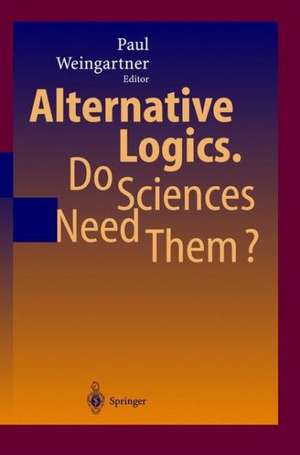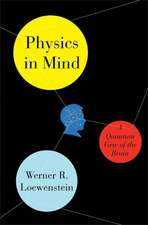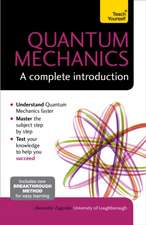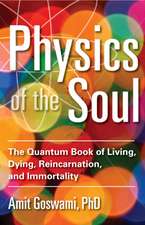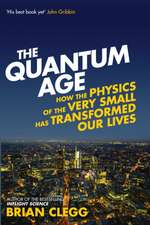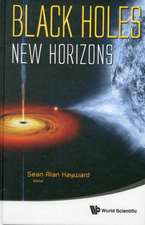Alternative Logics. Do Sciences Need Them?
Editat de Paul A. Weingartneren Limba Engleză Paperback – 15 dec 2010
| Toate formatele și edițiile | Preț | Express |
|---|---|---|
| Paperback (1) | 948.79 lei 43-57 zile | |
| Springer Berlin, Heidelberg – 15 dec 2010 | 948.79 lei 43-57 zile | |
| Hardback (1) | 954.93 lei 43-57 zile | |
| Springer Berlin, Heidelberg – 17 noi 2003 | 954.93 lei 43-57 zile |
Preț: 948.79 lei
Preț vechi: 1157.06 lei
-18% Nou
Puncte Express: 1423
Preț estimativ în valută:
181.55€ • 190.06$ • 150.22£
181.55€ • 190.06$ • 150.22£
Carte tipărită la comandă
Livrare economică 07-21 aprilie
Preluare comenzi: 021 569.72.76
Specificații
ISBN-13: 9783642073915
ISBN-10: 3642073913
Pagini: 388
Ilustrații: XVII, 368 p.
Dimensiuni: 155 x 235 x 20 mm
Greutate: 0.54 kg
Ediția:Softcover reprint of hardcover 1st ed. 2004
Editura: Springer Berlin, Heidelberg
Colecția Springer
Locul publicării:Berlin, Heidelberg, Germany
ISBN-10: 3642073913
Pagini: 388
Ilustrații: XVII, 368 p.
Dimensiuni: 155 x 235 x 20 mm
Greutate: 0.54 kg
Ediția:Softcover reprint of hardcover 1st ed. 2004
Editura: Springer Berlin, Heidelberg
Colecția Springer
Locul publicării:Berlin, Heidelberg, Germany
Public țintă
ResearchCuprins
I General Topics.- Why Is It Logical to Admit Several Logics?.- Does Metaphysics Need a Non-Classical Logic?.- Logic and the Philosophical Interpretation of Science.- How Set Theory Impinges on Logic.- Geometries and Arithmetics.- Remarks on Criteria of Truth and Models in Science.- Significant? Not Significant? The Dilemma of Statistical Induction in Scientific Research.- II Alternative Proposals.- Outline of a Paraconsistent Category Theory.- Combinatory Logic, Language, and Cognitive Representations.- Extending the Realm of Logic: The Adaptive-Logic Programme.- Comments on Jaakko Hintikka’s Post-Tarskian Truth.- III Alternative Logics Motivated by Problems of Application to Science.- Applied Logics for Computer Science.- Stochastic versus Deterministic Features in Learning Models.- Praxic Logics.- Reasons from Science for Limiting Classical Logic.- The Language of Interpretation in Quantum Physics and Its Logic.- Why Objectivist Programs in Quantum Theory Do Not Need an Alternative Logic.- Does Quantum Physics Require a New Logic?.- Experimental Approach to Quantum-Logical Connectives.- From Semantics to Syntax: Quantum Logic of Observables.- An Unsharp Quantum Logic from Quantum Computation.- Quantum Logic and Quantum Probability.- Operator Algebras and Quantum Logic.
Recenzii
From the reviews:
"This is a valuable anthology of invited papers about the role of alternative logics in science, especially physics. … this is a worthwhile book, especially for those interested in ‘the logic’ of quantum theory." (Dr. J.N. Butterfield, Contemporary Physics Vol. 46 (1), January – February, 2005)
"Alternative Logics is a panoramic overview of several logics, with an emphasis on the question whether science needs them. … A physics library could take pride in having a copy of Alternative Logics on its shelves." (F. A. Muller, Europhysics News, Vol. 36 (1), 2005)
"This is a valuable anthology of invited papers about the role of alternative logics in science, especially physics. … this is a worthwhile book, especially for those interested in ‘the logic’ of quantum theory." (Dr. J.N. Butterfield, Contemporary Physics Vol. 46 (1), January – February, 2005)
"Alternative Logics is a panoramic overview of several logics, with an emphasis on the question whether science needs them. … A physics library could take pride in having a copy of Alternative Logics on its shelves." (F. A. Muller, Europhysics News, Vol. 36 (1), 2005)
Textul de pe ultima copertă
Initially proposed as rivals of classical logic, alternative logics have become increasingly important in sciences such as quantum physics, computer science, and artificial intelligence. The contributions collected in this volume address and explore the question whether the usage of logic in the sciences, especially in modern physics, requires a deviation from classical mathematical logic. The articles in the first part of the book set the scene by describing the context and the dilemma when applying logic in science. In Part II the authors offer several logics that deviate in different ways from classical logics. The twelve papers in Part III investigate in detail specific aspects such as quantum logic, quantum computation, computer-science considerations, praxic logic, and quantum probability. Most of the contributions are revised and partially extended versions of papers presented at a conference of the same title of the Académie Internationale de Philosophie des Sciences held at the Internationales Forschungszentrum Salzburg in May 1999. Others have been added to complete the picture of recent research in alternative logics as they have been developed for applications in the sciences.
Caracteristici
This is a thorough review. For many years nothing of that kind has been published. But the logical concepts to be used in various disciplines is heavily discussed in the more specialized treatises. Here a complete overview is presented. Includes supplementary material: sn.pub/extras
